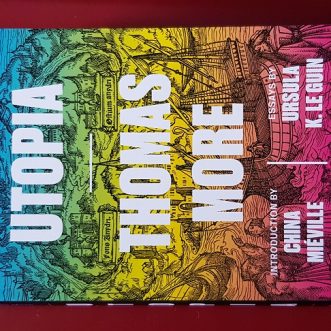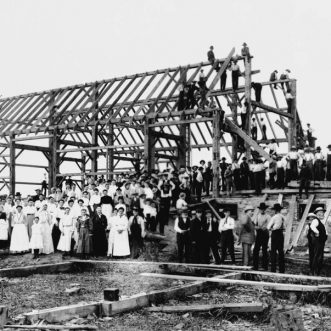
Thinking about flywheels, again.
I’ve been thinking about flywheels again.
Here’s one I drew to illustrate what I can do for a business:

A business freedom flywheel
Does that make sense to you?
Do let me know.

I’ve been thinking about flywheels again.
Here’s one I drew to illustrate what I can do for a business:

A business freedom flywheel
Does that make sense to you?
Do let me know.

A while ago, I wrote about Mintzberg’s continuum of management, which looks something like this:

I’ve been thinking, and I think it should look like this:

What do you think?

I’ve just finished reading this book, the first of 3 I ordered after hearing Margaret Heffernan on the radio last week.
It’s a worrying and challenging read, exploring and explaining just how naturally easy it is for we humans not to see what’s in right in front of our eyes.
The reasons are varied, from feelings of affinity or love, wanting to fit in or please people in authority, too rigid systems, distance and disconnection, the bystander effect, a narrow focus on money or sheer cognitive overload and exhaustion. Sometimes, in the worst scenarios, such as Grenfell Tower or Texas City, several reasons combine and exacerbate each other.
The answer is to make ourselves see better. Systematically, intentionally, but never mechanically.
We do that by encouraging diversity of thinking and argument, by thanking whistleblowers, complainers and critics instead of sidelining them.
We do it by constantly reminding ourselves of what we are in business to do – to make and keep promises to human beings, our customers, and by eliminating the hierarchies, silos and long chains of command that get in the way of that.
We do it by creating transparent ways of working that keep our promise visible and support people to hold each other accountable as human beings for seeing what’s really there, and acting on it.
And of course the irony is that if we do these things well, we will create more value and do better financially. Because its not only bad things we make ourselves wilfully blind to, its also opportunities.

We’ve all suffered from it. Corporate amnesia. You call a company you’ve done business with for years, and give them your name, address, and inside leg measurement 3 of 4 times before you get to the point of the call.
A more insidious form of corporate amnesia forces a team member to recall the process before they perform a task, instead of having the system remember it for them.
This kind of amnesia results in variation over time and between team members. Sometimes the variations will be improvements, but most often they are an ever-worsening copy of a long-forgotten original, void of life or meaning. Any improvements are forgotten, because the organisation has no way to capture them or remember them.
This isn’t just amnesia, its also akrasia – doing one thing when you should be doing another.
Because if you’re too busy remembering what’s supposed to happen, you aren’t making it happen.

I learned a lovely new word yesterday. ‘Akrasia’. It means doing one thing when you should be doing something else.
I’m guilty of that all the time, sometimes as a form of procrastination (I know I should eat my frog, but I’ll just have ice-cream first), occasionally as a form of hiding (doing the easy thing, because the hard thing is scary).
But whole companies are guilty of akrasia too. They spend time, money and attention instructing down and reporting up the management hierarchy, when they should be making and keeping promises to the people they serve instead.
The solution is simple.
Structure your business around doing, not monitoring.

If you’ve ever started up a spin bike, you know about flywheels.
They take a lot of effort to get going, but once they’re off, the energy you put in is released, making it much easier to keep momentum going for longer.
That’s a pretty good metaphor for building a system for making and keeping promises. It takes effort to get up and running, but once it is, it can keep going almost forever.
Long after you’ve jumped off the bike.

“The activities of a machine are determined by its structure, but the relationship is reversed in organisms – organic structure … Read More “The best of both worlds”

The thing I love about reading, is that I’m always finding new ways of saying things, from people who can say them much better than me.
This midsummer weekend, I finally got round to reading the Verso edition of Utopia, by Thomas More. It was not More’s words that struck me, but Ursula K. Le Guin’s – in fact not always her words, but words she assembled, interpreted and discussed in the first of her essays included with this book: “A non-Euclidean View of California as a Cold place to be”.
“The activities of a machine are determined by its structure, but the relationship is reversed in organisms – organic structure is determined by it’s processes”*
“The societies which have best protected their distinctive character appear to be those concerned above all with persevering in their existence.”**
“Persevering in one’s existence is the particular quality of the organism; it is not a progress towards achievement, followed by stasis, which is the machine’s mode, but an interactive, rhythmic, and unstable process, which constitutes an end in itself.”
“Since the day of the Roman empire and the Christian church, we hardly think of a social activity except as it is coherently Organized into a definite unit definitely subdivided. But, it must be recognized that such a tendency is not an inherent and inescapable one of all civilization.”***
I (like Le Guin) found Thomas More’s Utopia unsatisfactory. It is founded on force and maintained through slavery. It’s activities are determined by its structure. It is like most utopias,“the product of ‘the euclidean mind’ (a phrase Dostoyevsky often used), which is obsessed by the idea of regulating all life by reason and bringing happiness to man whatever the cost.”****
Here’s a stab at pulling this all together into something relevant for me as Gibbs & Partners:
As Derek Sivers puts it:
“When you make a business, you get to make a little universe where you control all the laws. This is your utopia”.
Welcome to mine.
*Fritjof Capra, The Turning Point (New York: Simon & Schuster, 1982). Excerpted in Science Digest (April 1982), p. 30.
**Claude Levi-Strauss, The Scope of Anthropology (London: Jonathan Cape, 1968), pp. 46-47. Also included in Structural Anthropology II (New York: Basic Books, 1976), pp. 28-30. The version here is Le Guin’s own amalgam of the two translations.
***Alfred L. Kroeber, Handbook of the Indians of California, Smithsonian Institution, Bureau of American Ethnology Bulletin no. 78 (Washington, D.C., 1925), p. 344.
****Robert C. Elliott, The Shape of Utopia (Chicago: University of Chicago Press, 1970)

I’ve saved the best gems from Eric Ries’s podcast episodes with Brian Chesky in Out of the Crisis till last. … Read More “The product you really make”

I’ve written before about multiple stakeholders, so I was pleased to hear what Brian Chesky shared about who he considers to be the stakeholders of Airbnb.
Yes, shareholders. But also employees (who also hold equity), visitors, hosts, suppliers, partners and the communities they operate in.
What particularly struck me was the way Chesky has designed in consideration for each set of stakeholders into the way the business works.
Here are his recommended first steps for setting up in business:
I love this! It means that a business is a system for making and keeping promises – to all its stakeholders.
Sometimes, its impossible to keep all your stakeholders happy, as Airbnb found right at the beginning of the COVID-19 crisis. But it seems that for Airbnb, knowing the promises they’ve pledged to keep has helped them to do the right things, in the right way, as far as they can.
And in the long run, this is what keeps the public wanting you to exist.
*Freeman, R. & Reed, Dl. (1983). Stockholders and Stakeholders: A New Perspective on Corporate Governance. California Management Review. 25. 10.2307/41165018.